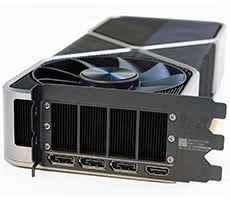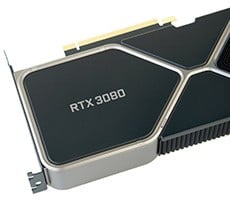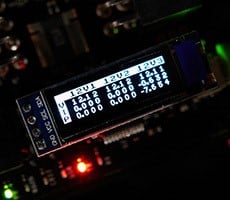Seagate FreeAgent DockStar NAS Device Review
Performance

In order to test the functionality of the DockStar, we placed it on a Gigabit-Ethernet network and accessed it from a variety of Windows, Mac, and Linux desktops and laptops. We connected to it via both wired and wireless connections, as well as remotely over the Internet. We connected a variety of USB hard drives and USB flash drives to the DockStar--with the drives formatted with a number of different file systems.
To test the device's performance, we connected a 320GB Seagate FreeAgent Go drive (formatted with with the NTFS file system) to the DockStar's top-mounted USB port--which is designed to work exclusively with the FreeAgent Go drive. We conducted a number of data-transfer tests to and from the device over our network using an HP Pavilion Elite m9550f desktop (2.5GHz Intel Core 2 Quad Q9300, 8GB PC2-6400 DDR2 SDRAM, 1TB NTFS 7200RPM SATA hard drive, ATI Radeon HD 4850 512MB, Windows Vista Home Premium SP1 64-bit) via a Gigabit-Ethernet connection. We conducted large-file write and read tests where we copied a 1.7GB ISO file between the DockStar and the m9550f. We also conducted small-files write and read tests where we copied a 267MB folder made up of 70 JPGs ranging in size from 2.27MB to 4.38MB between the DockStar and the m9550f. We conducted these tests by dragging-and-dropping the folders and files in Windows, with the DockStar connected as a mapped drive using the Pogoplug application.
We compared the performance of the DockStar against that of a number of full-featured NAS devices we've looked at recently, including the Seagate BlackArmor NAS 440, Synology Disk Station DS409+, HP MediaSmart Server LX195, WD My Work World Edition, Linksys by Cisco Media Hub, and Maxtor Central Axis Business Edition.
The DockStar's strong suite is its large-file transfer performance--especially when its writing data to a connected drive. On our tests, the DockStar wrote a large-sized file at a very respectable 23.1MBps (194.2Mbps)--which is even a hair faster than what we saw with the SMB-class Seagate BlackArmor NAS 440. In fact, the DockStar's large-file write performance was significantly faster than we've seen from a number of full-features NAS devices, such as the WD My Book World Edition and the Linksys by Cisco Media Hub. The DockStar's large-file read performance of 23.1MBps (193.5Mbps), however, was bested by most of the full-featured NAS devices we've tested. On our small-files transfer test, the DockStar could not write files (5.3MBps, 44.8Mbps) as speedily as any of the full-featured NAS devices; but it's small-files read performance (17.5MBps, 146.9Mbps) put it in the middle of the pack.
While it is not necessarily fair to compare the DockStar to more full-featured NAS devices, it is useful to see how it compares to more expensive options. That said, we also compared the DockStar to other similar USB-drive-based NAS solutions: specifically the Pogoplug and the Addonics NAS Adapter. We tested the Addonics some time ago and it is possible that more recent firmware updates have improved performance, but it was no longer available to us for re-testing. The Pogoplug, however, was still on hand, so we re-tested it with the latest firmware. We included performance numbers for the Pogoplug from our original testing (using firmware 1.0.0.16) and from our re-testing (using firmware 1.0.0.36) in the charts below. We also wanted to see how the DockStar performed when it was mapped as a network volume instead of as a local drive (using the Pogoplug app)--performance numbers for both scenarios are in the charts below.
After we ran our tests, the first thing that jumped out at us was how much of difference we saw in the DockStar's small-files write performance when we switched from mapping it as a local drive to mapping it as a network volume--transfer speeds jumped from 5.3MBps (44.8Mbps) to 17.8MBps (149.5Mbps)--roughly a 3.3x speed increase. The DockStar's other tranfser rates sped up as well, but only by a small margin. However, when mapped as a network volume, the DockStar was the speediest of the USB-drive-based NAS solutions we tested.










